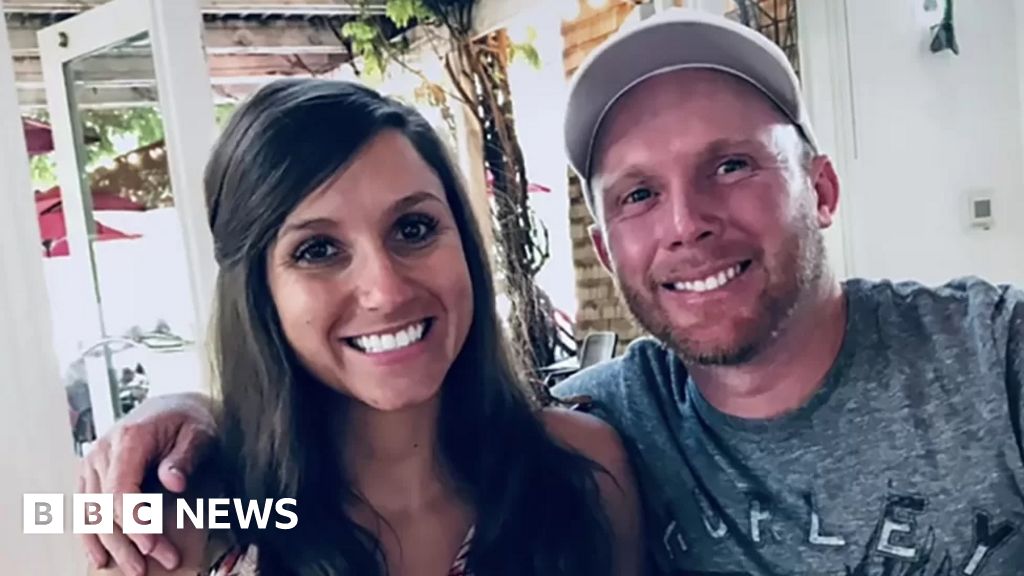When Home Becomes A Crime Scene: Unpacking Cases Of Wives Who Killed Their Husbands
The home is often seen as a sanctuary, a place of comfort, love, and safety. Yet, for some, it becomes the stage for unimaginable tragedy. While domestic violence is a pervasive issue that disproportionately affects women, there are shocking instances where the roles are reversed, and a wife becomes the perpetrator in the death of her husband. These cases, though less frequently highlighted, are equally complex, devastating, and often rooted in a tangled web of emotions, desperation, and long-standing issues. This article delves into several real-life occurrences where wives killed their husbands, examining the circumstances, potential motives, and the profound impact of such events.
The Unthinkable Act: A Look at Recent Cases
Each case of spousal homicide carries its own unique, tragic narrative, often revealing deep-seated problems within a marriage. From sudden outbursts to calculated plans, the motives and methods vary, but the outcome is always devastating, leaving families and communities reeling.
When Marital Discord Turns Fatal
In many instances, the act of a wife killing her husband stems from escalating conflict, abuse, or a breaking point reached after years of emotional or physical strain. These cases tragically highlight the extreme consequences of unresolved marital discord and the potential for violence when communication breaks down and tensions mount.
- The Conviction of Natalie Cochran: In a high-profile case from Raleigh County, Natalie Cochran was found guilty of first-degree murder on Wednesday, Jan. 29, for the 2019 death of her 38-year-old husband, Michael Cochran. As reported by CBS News, this conviction underscores the serious legal ramifications faced by individuals involved in such heinous crimes, bringing a form of closure, albeit a tragic one, to a family shattered by violence and loss.
- The Wisconsin Woman's Breaking Point: A particularly chilling account emerged from Wisconsin, where a woman allegedly shot her husband dead last week during an argument. Her reported reason? She was "tired" of being put down by him. The alleged final straw came when, according to her statement to cops, "He called me a b— for the last," implying a history of verbal abuse that culminated in a fatal confrontation. This case tragically illustrates how persistent emotional abuse can erode a person's psyche, leading to explosive and irreversible outcomes.
- Kimberly Charlton's Charges: In another grim development, Kimberly Charlton, 66, has been charged with First Degree Murder in connection with the death of her 72-year-old husband, David Charlton. She is currently being held on a substantial $1,000,000 bond in Black Hawk, signaling the severity of the charges and the legal system's response to such domestic fatalities, emphasizing the gravity of the alleged crime.
- Tammy Lynn Rutkowski's Flight: The aftermath of such a crime often involves attempts to evade justice, adding another layer of complexity to the investigation. After killing her husband, Donald Roy Rutkowski, in Hope Mills, Tammy Lynn Rutkowski fled north to Maryland. Her flight was short-lived, however, as she was subsequently caught by Baltimore County Police officers, demonstrating the relentless pursuit of law enforcement in bringing perpetrators to justice, regardless of how far they try to escape.
Desperation, Illness, and Planned Endings
Beyond immediate conflict, some cases reveal deeper layers of desperation, fear, or even a misguided sense of mercy, leading to meticulously planned, or emotionally charged, fatal actions. These scenarios often paint a picture of individuals pushed to their limits, facing circumstances they feel are insurmountable.
- The Tragic Hospital Shooting: A particularly heart-wrenching incident in Florida involved a 76-year-old woman who fatally shot her dying husband in his hospital bed. Volusia County deputies described this as a planned murder-suicide, highlighting a profound act of desperation, possibly driven by compassion or an inability to cope with impending loss and the burden of care, leading to a decision to end both their lives.
- The Former Model's Fear of Divorce: In a case that speaks to profound personal anxieties and the fear of social repercussions, a former Big Apple model fatally shot her day-trader husband before turning the gun on herself. Her motive reportedly stemmed from a deep fear that he would divorce her after she confessed to cheating. This tragic scenario underscores how fear of abandonment, shame, and the consequences of personal revelations can drive individuals to extreme and irreversible acts, blurring the lines between self-preservation and destruction.
- Amanda Hovanec's Confession: The concealment of a crime adds another layer of horror and premeditation to these events. When Amanda Hovanec spoke to investigators on April 27, 2022, she admitted to killing her husband, abandoning his car in Dayton, and burying his body in woods not far from the scene. Her confession reveals the calculated lengths to which some individuals go to hide their actions, and the eventual unraveling of such deceptions under the scrutiny of law enforcement.
Exploring the Complexities: Why Does This Happen?
Understanding why a wife might kill her husband requires looking beyond the act itself to the underlying factors that can contribute to such a devastating outcome. These are rarely simple cases, and often involve a confluence of pressures, psychological states, and circumstances that build over time, leading to a tragic climax.
Common contributing factors often include:
- Abuse (Physical, Emotional, or Psychological): As seen in the Wisconsin case, a history of being "put down" or subjected to ongoing verbal or emotional abuse can severely erode a person's mental state, leading to a breaking point where they feel their only escape is through violence. Similarly, a Cedar Falls woman reportedly warned her husband she would shoot him after he tried beating her and the family dog, illustrating how self-preservation or protection of loved ones can become a motive or trigger in chronically abusive relationships.
- Fear and Desperation: The former Big Apple model's fear of divorce highlights how intense fear of abandonment, exposure, or loss of stability can trigger extreme reactions. In cases like the 76-year-old woman in Florida, desperation stemming from a spouse's terminal illness can lead to tragic "mercy killing" scenarios, often coupled with suicidal ideation, where the perpetrator believes they are alleviating suffering or ending their own unbearable pain.
- Mental Health Issues: While not explicitly stated in all case summaries, underlying mental health conditions such as severe depression, anxiety disorders, personality disorders, or even psychotic episodes can significantly impair judgment and impulse control, contributing to violent outbursts or meticulously planned crimes. These conditions can distort reality and make individuals feel trapped or desperate.
- Financial Strain or Greed: Although not detailed in the provided data for these specific cases, financial disputes, overwhelming debt, or the prospect of inheritance are well-documented motives in spousal homicides across various demographics. The pressure of financial instability can exacerbate existing marital problems and lead to desperate measures.
- Self-Defense: In some instances, the act of killing a spouse may be claimed as self-defense, particularly in situations of ongoing domestic violence where the perpetrator feels their life, or the lives of their children/pets, are in immediate danger. The Cedar Falls case, while a warning, points to this potential dynamic where a person might resort to violence to protect themselves or others from imminent harm.
- Concealment of Other Crimes/Secrets: As seen with Amanda Hovanec, the murder might be an attempt to cover up another crime, a secret, or to prevent a revelation that could have severe personal, social, or legal consequences. This adds a layer of calculation and desperation to the act.
The Aftermath: Justice and Consequences
For those who commit such acts, the legal consequences are severe and life-altering. Charges of First Degree Murder, as seen with Kimberly Charlton, carry the most serious penalties, including lengthy prison sentences or life imprisonment. The legal process involves extensive investigations, often public trials, and the painful unraveling of deeply personal and private details of the marriage. For the families involved, the aftermath is a complex tapestry of grief, shock, and the arduous journey of coming to terms with a loved one's death at the hands of another family member, leaving an indelible scar on their lives.
These cases serve as stark reminders of the hidden struggles that can exist within relationships and the devastating potential when those struggles escalate beyond control. They underscore the critical importance of recognizing signs of domestic distress, whether it be abuse, severe emotional instability, or overwhelming desperation, and seeking intervention before a situation turns fatal. Support systems, mental health resources, and avenues for safe escape from abusive environments are vital tools in preventing such tragedies and offering a path to safety and healing.
Final Summary: This article explored several harrowing instances where wives were responsible for the deaths of their husbands, drawing from recent news reports. Cases like Natalie Cochran's conviction for her husband Michael's death, the Wisconsin woman's alleged breaking point due to persistent emotional abuse, the desperate act of a 76-year-old woman in a hospital, and the flight of Tammy Lynn Rutkowski after killing her husband Donald illustrate the varied and tragic circumstances. We also examined potential underlying factors such as long-term abuse, fear of abandonment, mental health issues, and profound desperation, highlighting the immense complexity of these domestic tragedies. Ultimately, these incidents serve as a grave reminder of the critical need for addressing domestic violence in all its forms, providing accessible mental health support, and fostering environments where individuals can safely seek help before conflicts within a marriage lead to irreversible and devastating outcomes.

Kouri Richins: Woman accused of murder searched luxury prisons, court told

Indian woman arrested over 'replacement husband plot'

Neston sugar water murder: Wife killed husband with boiling mix - BBC News